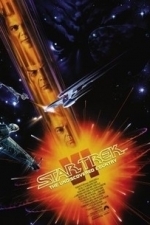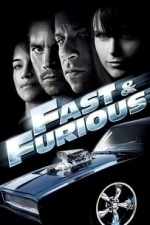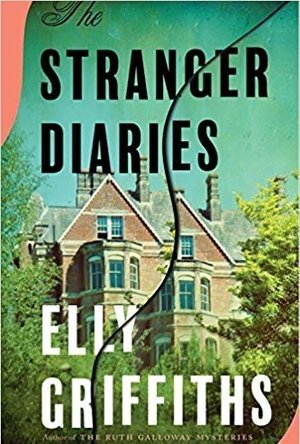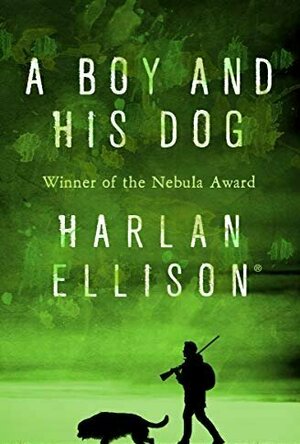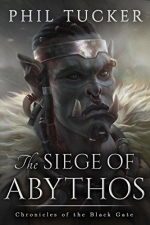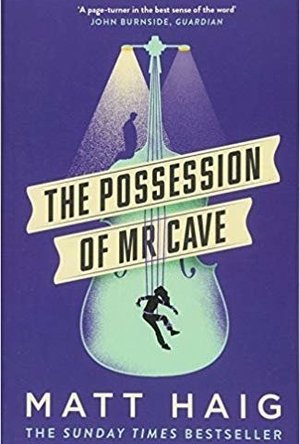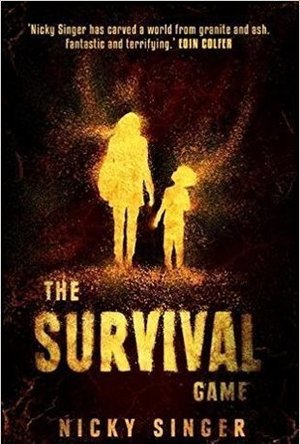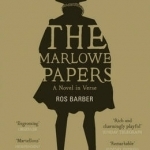Search
Bob Mann (459 KP) rated Star Trek VI - The Undiscovered Country (1991) in Movies
Sep 28, 2021
“Star Trek is not bloody Shakespeare” – – I’m sure someone has said that at some point (probably, my wife!). But here, it is! The late Christopher Plummer comes roaring into the series joyfully quoting the great bard (from the original Klingon version!).
Trek got firmly back in the fast lane again with this movie. The fun was back! David Warner becomes the only character to date to appear in two consecutive Trek films as different characters (with curiously Michael Dorn becoming the next – see below!). He gets a meatier part this time though. But he – and indeed everyone else – is upstaged by Plummer’s marvellously over-the-top performance.
Iman is memorable as a cigar-smoking shape-shifting alien, leading to some wonderful Kirk-on-Kirk action, and the delivery of one of the best lines of comedy in the series: surprisingly self-deprecating for the normally ego-centric Shatner. There’s also a welcome call-back to the ‘Kirk gets the girl’ joke of the original series, which you realise, with a shock, has been completely missing from all of the previous movie outings.
There are also a nice range of cameo appearances in here. Christian Slater – a lifelong Trek-fan – has a bit part: apparently he framed, rather than cashed, his cheque! And Michael Dorn – already playing Worf in “The Next Generation”, and to appear as Worf in the next movie – plays Worf’s grandfather, a Klingon defence attorney!
But my favourite piece of trivia relates to a completely different film. Al Pacino was filming “Frankie and Johnny” in the studio at the same time, and a scene (sadly cut from the final film) called for Pacino to look surprised after opening a door. So director Garry Marshall arranged for Shatner, Nimoy and Kelley in full Star Trek costume, to be standing behind the door when he opened it. (Garry Marshall quote here). Love it!
Trek got firmly back in the fast lane again with this movie. The fun was back! David Warner becomes the only character to date to appear in two consecutive Trek films as different characters (with curiously Michael Dorn becoming the next – see below!). He gets a meatier part this time though. But he – and indeed everyone else – is upstaged by Plummer’s marvellously over-the-top performance.
Iman is memorable as a cigar-smoking shape-shifting alien, leading to some wonderful Kirk-on-Kirk action, and the delivery of one of the best lines of comedy in the series: surprisingly self-deprecating for the normally ego-centric Shatner. There’s also a welcome call-back to the ‘Kirk gets the girl’ joke of the original series, which you realise, with a shock, has been completely missing from all of the previous movie outings.
There are also a nice range of cameo appearances in here. Christian Slater – a lifelong Trek-fan – has a bit part: apparently he framed, rather than cashed, his cheque! And Michael Dorn – already playing Worf in “The Next Generation”, and to appear as Worf in the next movie – plays Worf’s grandfather, a Klingon defence attorney!
But my favourite piece of trivia relates to a completely different film. Al Pacino was filming “Frankie and Johnny” in the studio at the same time, and a scene (sadly cut from the final film) called for Pacino to look surprised after opening a door. So director Garry Marshall arranged for Shatner, Nimoy and Kelley in full Star Trek costume, to be standing behind the door when he opened it. (Garry Marshall quote here). Love it!
RəX Regent (349 KP) rated Fast & Furious (2009) in Movies
Feb 25, 2019
Back on track
The best way to describe Fast & Furious would be as a guilty pleasure. There's nothing to lend weight to this film as a great work, an Oscar contender or a movie worthy of critical acclaim, but there something about this, as there was with the first, The Fast And The Furious, back in 2001.
Rob Cohen has never been known for subtlety and his 2001 film was far from it, but even even though he had nothing to do with this, his stamp is well and truly on it. Fast & Furious is the fourth in this surprising successful franchise, and besides the fact that I liked the original in spite of the fact that I'm NOT a motor-head, I've avoided the intervening sequels, 2 fast, 2 Furious and Tokyo Drift, for one simple reason, besides the fact that just didn't fancy them.
No Vin Diesel. I'm not suggesting that Vin is the greatest actor in the Hollywood, nor should be treading the boards of the Royal Shakespeare Company anytime soon, but his blockhead with a heart of gold persona works for me. He's likable and suits this role down to a tee, as does his dimwitted surfer dude sidekick, Paul Walker.
Walker offers nothing significant to the film except for his relationship with Diesel. The pairing is enjoyable but little more, but isn't that the point of adrenalin films like this? This is about cars, women, cops and robbers, and great fun to boot. The tone of this movie is on par with Cohen's original and though I can't justifiably compare this to the sequels which I have never seen, I don't want too either. This is the sequel that 2 Fast should have been and I only hope that now they're back on track, that Fast & Furious 5 could be another romp worthy of a watch.
It's nice to see a franchise go off track and find its feet again after so many years and it is a testament to the original cast who, though only have a limited range, have clearly breathed life back into the franchise.
Rob Cohen has never been known for subtlety and his 2001 film was far from it, but even even though he had nothing to do with this, his stamp is well and truly on it. Fast & Furious is the fourth in this surprising successful franchise, and besides the fact that I liked the original in spite of the fact that I'm NOT a motor-head, I've avoided the intervening sequels, 2 fast, 2 Furious and Tokyo Drift, for one simple reason, besides the fact that just didn't fancy them.
No Vin Diesel. I'm not suggesting that Vin is the greatest actor in the Hollywood, nor should be treading the boards of the Royal Shakespeare Company anytime soon, but his blockhead with a heart of gold persona works for me. He's likable and suits this role down to a tee, as does his dimwitted surfer dude sidekick, Paul Walker.
Walker offers nothing significant to the film except for his relationship with Diesel. The pairing is enjoyable but little more, but isn't that the point of adrenalin films like this? This is about cars, women, cops and robbers, and great fun to boot. The tone of this movie is on par with Cohen's original and though I can't justifiably compare this to the sequels which I have never seen, I don't want too either. This is the sequel that 2 Fast should have been and I only hope that now they're back on track, that Fast & Furious 5 could be another romp worthy of a watch.
It's nice to see a franchise go off track and find its feet again after so many years and it is a testament to the original cast who, though only have a limited range, have clearly breathed life back into the franchise.
Kristy H (1252 KP) rated The Stranger Diaries in Books
Apr 4, 2019 (Updated May 21, 2019)
Oh I love Elly Griffiths so much, and I was incredibly excited to win this book in a Goodreads Giveaway. It was so good! It's told in various points of view, including Clare's and that of Harbinder, an incredibly awesome Sikh lesbian Detective Constable. I mean... so cool. Harbinder attended Talgarth High in the past, so her former schooling memories are aligned with the current case.
The book gets off to an engaging start from the beginning. It's creepy and interesting from page one and never stops. We get pieces of R.M. Holland's story "The Stranger" interwoven in our story, too, and have to figure out how it aligns to the tale unfolding before our eyes. In fact, the book is very literary, which is really fun, especially if you're a book nerd like me. Lots of little Easter eggs thrown in, almost: bits of Shakespeare and more throughout.
Griffiths is just so darn good at writing her characters. Clare and Harbinder are both so uniquely "them" and different from each other from the get-go. I was completely engrossed in the story and caught up in their lives, even Clare's and honestly, she can be a little self-absorbed at times. It's hard not to appear that way when you're reading excerpts from someone's journals. Clare has a daughter, too, and we also learn about others in the English department who worked with Clare. Truly, the British education system is its own mystery to me, though I'm slowly learning about it through many English novels!
This novel is an excellent mystery and incorporates creepy Gothic undertones. I couldn't help but get a little spooked when Clare was discovering writing that wasn't hers in her journal. Even better, it's just so good and well-written! It kept me guessing the entire time, and putting all the pieces together down the finish line was fun. I literally had no idea who had done it--it was incredibly well-done!
Overall, I really enjoyed this one. The characters are great, the plot is befuddling and exciting--it's a wonderful mystery! Highly recommend.
The book gets off to an engaging start from the beginning. It's creepy and interesting from page one and never stops. We get pieces of R.M. Holland's story "The Stranger" interwoven in our story, too, and have to figure out how it aligns to the tale unfolding before our eyes. In fact, the book is very literary, which is really fun, especially if you're a book nerd like me. Lots of little Easter eggs thrown in, almost: bits of Shakespeare and more throughout.
Griffiths is just so darn good at writing her characters. Clare and Harbinder are both so uniquely "them" and different from each other from the get-go. I was completely engrossed in the story and caught up in their lives, even Clare's and honestly, she can be a little self-absorbed at times. It's hard not to appear that way when you're reading excerpts from someone's journals. Clare has a daughter, too, and we also learn about others in the English department who worked with Clare. Truly, the British education system is its own mystery to me, though I'm slowly learning about it through many English novels!
This novel is an excellent mystery and incorporates creepy Gothic undertones. I couldn't help but get a little spooked when Clare was discovering writing that wasn't hers in her journal. Even better, it's just so good and well-written! It kept me guessing the entire time, and putting all the pieces together down the finish line was fun. I literally had no idea who had done it--it was incredibly well-done!
Overall, I really enjoyed this one. The characters are great, the plot is befuddling and exciting--it's a wonderful mystery! Highly recommend.
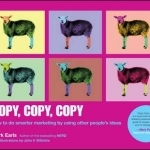
Copy, Copy, Copy: How to Do Smarter Marketing by Using Other People's Ideas
Mark Earls and John V. Willshire
Book
THE #1 HACK FOR SMARTER MARKETING We all want new answers and new solutions for the very real and...
Joe Goodhart (27 KP) rated A Boy and His Dog in Books
Nov 30, 2020
I was very saddened to hear the news of Harlan Ellison's passing. While I didn't agree with him on some things, I did agree with him on a great number of them. Cantankerous, but not snarky or mean-spirited, in his writings and conversations. I found him to one of the best writers on the planet. Now, he's joined the likes of Shakespeare, Emerson, Vonnegut, all at God's assembled roundtable of literary greats! :)
Okay, that's enough of my tribute-of-sorts to Harlan Ellison. Now, for my review of A BOY AND HIS DOG.
This was a a quick, fun read. Quite literally, it is the adventure of boy (Vic) and his telepathic dog (Blood). The two rely on each other, sharing bond that comes through in all of their exchanges. A four-legged friend who became so much more than just a "canine companion".
The tale was written in 1969 and was later adapted for film by L.Q. Jones. Despite the time written, the book still reads as if written yesterday. And that was something unique about Ellison: his writing felt timeless, as if it was not tied to any particular time during which it was written.
Yes, the language can be deemed coarse at points, but still far less offensive than anything written today. The use of profanity is given to the way Vic speaks, a product of the post-apocalyptic world he was born. It never feels forced or anything approaching offensive. It just feels, for want of a better word, natural.
Again, this is a fun short story about a boy and his dog. It may not appeal to everyone, but I surely liked it and I hope that maybe you will, too.
Also, stick around after the story, as "AHBHU: The Passing of One Man's Inspiration and Best Friend". It is Harlan Ellison's tribute/memorial to his rescued dog, a Puli (essentially, a Hungarian sheep dog), and how much he meant to him, so much so that he was whom Ellison based Blood's character on. I challenge you to NOT tear up by the conclusion!
By all means, good people, please check this one out!
Okay, that's enough of my tribute-of-sorts to Harlan Ellison. Now, for my review of A BOY AND HIS DOG.
This was a a quick, fun read. Quite literally, it is the adventure of boy (Vic) and his telepathic dog (Blood). The two rely on each other, sharing bond that comes through in all of their exchanges. A four-legged friend who became so much more than just a "canine companion".
The tale was written in 1969 and was later adapted for film by L.Q. Jones. Despite the time written, the book still reads as if written yesterday. And that was something unique about Ellison: his writing felt timeless, as if it was not tied to any particular time during which it was written.
Yes, the language can be deemed coarse at points, but still far less offensive than anything written today. The use of profanity is given to the way Vic speaks, a product of the post-apocalyptic world he was born. It never feels forced or anything approaching offensive. It just feels, for want of a better word, natural.
Again, this is a fun short story about a boy and his dog. It may not appeal to everyone, but I surely liked it and I hope that maybe you will, too.
Also, stick around after the story, as "AHBHU: The Passing of One Man's Inspiration and Best Friend". It is Harlan Ellison's tribute/memorial to his rescued dog, a Puli (essentially, a Hungarian sheep dog), and how much he meant to him, so much so that he was whom Ellison based Blood's character on. I challenge you to NOT tear up by the conclusion!
By all means, good people, please check this one out!
Ross (3284 KP) rated The Siege of Abythos in Books
Nov 7, 2017
Poetry battle (2 more)
Poetry battle
Poetry battle
The third instalment in the Chronicles of the Black Gate series is the biggest yet, in terms of page count. The story follows the same PoV characters as previous books but their adventures are now covering so much more of the world and the storyline is becoming quite entangled.
Tharok's attempts to unite the orc-like kragh tribes and invade the human world continue, meanwhile Lady Iskra seeks to rescue her son and take revenge on the Ascendant's empire.
This book covers a lot more political debate and intrigue than the previous two, with prolonged discussion of who should be invaded, and what should be done thereafter. While this is very much a necessity in such an epic tale I felt it was somewhat laboured at times.
I very nearly gave up on this book at one point - where the portly magister Audsley (who has three demons lurking in his soul) was seeking to inveigle his way into the upper echelons of the empire, most of this storytelling centred around the colour of robes to wear, the type and colour of paper to use in sending letters and reciting poetry. Again this was very much laboured but bearable, until it looked like we were heading for what can only be described as a poetry battle, where Audsley (coached by one of his demons) was set to take on a senior government official's poetry representative in a battle of wits to see how would curry favour in the empire.
That's right: a poetry battle.
Think Philip Larkin in 8 Mile.
Will the real Slim Shakespeare please stand up.
Kanye Wordsworth.
NWA (Novelists with Assonance)
At this point I very nearly gave up. Thankfully, so did Audsley and the contest ended abruptly as he refused to let his demon take control of him. Phew. Disaster avoided. If this had been allowed to continue it would have made Tom Bombadil look like a critical plot point.
Other than Audsley's chapters (which in the previous book had been a highlight) the book does roll along at a reasonable pace and there is just about enough action to keep the interest, particularly in the last 100 or so pages.
All in all, a good read and a turning point for the series as a whole, but a lot of nonsense could have been removed, (Edgar Allan) Poe Shizzle.
Tharok's attempts to unite the orc-like kragh tribes and invade the human world continue, meanwhile Lady Iskra seeks to rescue her son and take revenge on the Ascendant's empire.
This book covers a lot more political debate and intrigue than the previous two, with prolonged discussion of who should be invaded, and what should be done thereafter. While this is very much a necessity in such an epic tale I felt it was somewhat laboured at times.
I very nearly gave up on this book at one point - where the portly magister Audsley (who has three demons lurking in his soul) was seeking to inveigle his way into the upper echelons of the empire, most of this storytelling centred around the colour of robes to wear, the type and colour of paper to use in sending letters and reciting poetry. Again this was very much laboured but bearable, until it looked like we were heading for what can only be described as a poetry battle, where Audsley (coached by one of his demons) was set to take on a senior government official's poetry representative in a battle of wits to see how would curry favour in the empire.
That's right: a poetry battle.
Think Philip Larkin in 8 Mile.
Will the real Slim Shakespeare please stand up.
Kanye Wordsworth.
NWA (Novelists with Assonance)
At this point I very nearly gave up. Thankfully, so did Audsley and the contest ended abruptly as he refused to let his demon take control of him. Phew. Disaster avoided. If this had been allowed to continue it would have made Tom Bombadil look like a critical plot point.
Other than Audsley's chapters (which in the previous book had been a highlight) the book does roll along at a reasonable pace and there is just about enough action to keep the interest, particularly in the last 100 or so pages.
All in all, a good read and a turning point for the series as a whole, but a lot of nonsense could have been removed, (Edgar Allan) Poe Shizzle.
Sam (74 KP) rated The Possession of Mr Cave in Books
Mar 27, 2019
The Possession of Mr Cave is the story of a father’s mental breakdown after the tragic loss of many people close to him. Terrence is mentally unwell through the whole novel and is fighting his dead son’s influence on his mind. It’s completely disturbing, surprising and scary.
I’ll start this off by saying that I know that this book wasn’t for me. As I said, the blurb didn’t sound like anything I would usually enjoy reading and I only bought the book because it was by Matt Haig. But just because the book wasn’t for me didn’t stop me from still giving it 3/5.
The Possession of Mr Cave is very Shakespearean which isn’t a surprise coming from Matt Haig, as he has written a few novels inspired by Shakespeare’s plays. This is written as if it is one of Shakespeare’s tragedies, so if you do enjoy that sort of thing, the book will be perfect. To begin with, it reminded me a lot of Romeo and Juliet because the novel begins at the end with Terrence Cave explaining that he has killed his daughter, and the novel is a letter to her, retelling exactly how the events led to her death. I did quite like this format, because it meant the suspense rose throughout the whole novel and left me guessing as to why he would kill his own daughter right up until the end.
I’m not the biggest fan of Shakespeare, which is why I feel that this was just not the book for me. Like I said, this reads exactly like a Shakespearean Tragedy, which I think in a way is also why I struggled to get into it. The language seemed clunky and drawn out in places and made it a bit hard to read, as well as Terrence’s conversations with his own mind.
It’s disturbing, and that is exactly what pulled me in. Terrence takes his protectiveness over Bryony too far to the point where I was wondering where his relationship with her was going to lead. I found it upsetting that nobody around Terrence spoke to him about how he was too protective of his daughter, and also how despite everything, nobody took the time to see if Terrence was okay.
I’ll start this off by saying that I know that this book wasn’t for me. As I said, the blurb didn’t sound like anything I would usually enjoy reading and I only bought the book because it was by Matt Haig. But just because the book wasn’t for me didn’t stop me from still giving it 3/5.
The Possession of Mr Cave is very Shakespearean which isn’t a surprise coming from Matt Haig, as he has written a few novels inspired by Shakespeare’s plays. This is written as if it is one of Shakespeare’s tragedies, so if you do enjoy that sort of thing, the book will be perfect. To begin with, it reminded me a lot of Romeo and Juliet because the novel begins at the end with Terrence Cave explaining that he has killed his daughter, and the novel is a letter to her, retelling exactly how the events led to her death. I did quite like this format, because it meant the suspense rose throughout the whole novel and left me guessing as to why he would kill his own daughter right up until the end.
I’m not the biggest fan of Shakespeare, which is why I feel that this was just not the book for me. Like I said, this reads exactly like a Shakespearean Tragedy, which I think in a way is also why I struggled to get into it. The language seemed clunky and drawn out in places and made it a bit hard to read, as well as Terrence’s conversations with his own mind.
It’s disturbing, and that is exactly what pulled me in. Terrence takes his protectiveness over Bryony too far to the point where I was wondering where his relationship with her was going to lead. I found it upsetting that nobody around Terrence spoke to him about how he was too protective of his daughter, and also how despite everything, nobody took the time to see if Terrence was okay.
Cynthia Armistead (17 KP) rated Grave Secret (Harper Connelly, #4) in Books
Mar 1, 2018
I'd say that wraps it up for this series. No, I won't tell you why I'm saying that, or it'll ruin the book for you.
The Harper Connelly series hasn't ever been as strong as the Southern Vampire series, in my opinion, but it wasn't too bad in comparison to some of her earlier work, like the Aurora Teagarden and Shakespeare mysteries. She seemed to be experimenting with something darker this time around. I haven't looked at the Amazon rank or any other figures for the series, but it's my gut feeling that they never took off in comparison to the Sookie Stackhouse series, especially since True Blood has gotten so much attention with the television series. I have to wonder what that feels like for Ms. Harris, as this really was a decent concept with some promise, and it doesn't seem to have been given that much of a chance to blossom.
In any case, Harper and her brother are prickly characters and not very easy to relate to, and they don't get any easier in this book. They are back in their home town, and we get to now a lot more about their origins this time around. We finally get the whole story about their missing sister, and we meet the two little sisters who live with an aunt and uncle.
The portrayal of the devout blue-collar people with their working-man's faith is absolutely smack on. I came from those people, and I could taste the sweet tea and see the linoleum and the absolutely clean Formica dinette, feel the cracked chairs the characters sat on and look around at the carefully kept house. Harris did a great job with that town and those people, so much so that I'm sure she either came from a similar place or has spent plenty of time in one.
There isn't as much new magic/plot stuff as there are answers this time. The sexy gypsy boy-almost-man is back, to my delight. Harper's love interest is still a bit of a squick, but I suppose it makes sense for the characters. I have to wonder how many authors would stick with that kind of decision, knowing the backlash they'd get from their readers?
If you've read the other Harper Connelly books, read this one for closure. If you haven't, this isn't the place to start!
The Harper Connelly series hasn't ever been as strong as the Southern Vampire series, in my opinion, but it wasn't too bad in comparison to some of her earlier work, like the Aurora Teagarden and Shakespeare mysteries. She seemed to be experimenting with something darker this time around. I haven't looked at the Amazon rank or any other figures for the series, but it's my gut feeling that they never took off in comparison to the Sookie Stackhouse series, especially since True Blood has gotten so much attention with the television series. I have to wonder what that feels like for Ms. Harris, as this really was a decent concept with some promise, and it doesn't seem to have been given that much of a chance to blossom.
In any case, Harper and her brother are prickly characters and not very easy to relate to, and they don't get any easier in this book. They are back in their home town, and we get to now a lot more about their origins this time around. We finally get the whole story about their missing sister, and we meet the two little sisters who live with an aunt and uncle.
The portrayal of the devout blue-collar people with their working-man's faith is absolutely smack on. I came from those people, and I could taste the sweet tea and see the linoleum and the absolutely clean Formica dinette, feel the cracked chairs the characters sat on and look around at the carefully kept house. Harris did a great job with that town and those people, so much so that I'm sure she either came from a similar place or has spent plenty of time in one.
There isn't as much new magic/plot stuff as there are answers this time. The sexy gypsy boy-almost-man is back, to my delight. Harper's love interest is still a bit of a squick, but I suppose it makes sense for the characters. I have to wonder how many authors would stick with that kind of decision, knowing the backlash they'd get from their readers?
If you've read the other Harper Connelly books, read this one for closure. If you haven't, this isn't the place to start!
ClareR (6096 KP) rated The Survival Game in Books
Sep 10, 2018
Global warming from a child's perspective.
I know it's necessary to have differentiation between the age groups for the protection of those who are youngest, but in this case, knowing that this is a child's/ young person's book, may put adults off reading this - and that would be a shame. All of the themes in this novel are very current. Set against the backdrop of a global climate disaster, we see how the displaced are treated: in a word, badly. We see the devastation that global warming wreaks, and the terrifying journey that a 14 year old girl, Mhairi Anne Bain (Mab, for short, which is interesting, as she is a symbol of freedom in Shakespeare and Mab Darogan in Welsh folklore was someone who was prophesied to come and save the Welsh from the English by forcing them out, as the Scots have forced the English out in this story, I suppose. Don't ask me how I remember this kind of information) makes on her own from the Sudan to the Isle of Arran. On her journey, she meets a young boy who doesn't speak, and she finds herself feeling responsible for him. I think he gives her some hope and a reason to keep going, to be honest. She decides to take him home with her, but of course, it isn't that easy.
Everything in this novel is plausible - the way in which Scotland and other countries decide how to control population, global warming and its consequences, and the resultant mass movement of people affected by drought and flooding.
I really enjoyed this: Mhairi has a very mature voice, as would any child who had seen and experienced what she had, and she is believable. We don't see all of the horrors she experiences, but they are alluded to, which is probably a very good idea when children are going to be the target audience. To be honest, there are a lot of adults that really don't want or need the gory details.
This is a timely novel, and one that is important to read. I could see that there would be a lot of discussion arising from this book in a classroom.
Many thanks to NetGalley and the publisher for my copy of this book to read and to give an honest review.
Everything in this novel is plausible - the way in which Scotland and other countries decide how to control population, global warming and its consequences, and the resultant mass movement of people affected by drought and flooding.
I really enjoyed this: Mhairi has a very mature voice, as would any child who had seen and experienced what she had, and she is believable. We don't see all of the horrors she experiences, but they are alluded to, which is probably a very good idea when children are going to be the target audience. To be honest, there are a lot of adults that really don't want or need the gory details.
This is a timely novel, and one that is important to read. I could see that there would be a lot of discussion arising from this book in a classroom.
Many thanks to NetGalley and the publisher for my copy of this book to read and to give an honest review.
Deborah (162 KP) rated The Marlowe Papers in Books
Dec 21, 2018
I thought this was a really interesting idea; a 'novel (if that's even the right word!) written entirely in Blank Verse. Obviously the subject matter was also one that interested me.
The book apparently formed part of Barber's PhD and her central theory is the one that playwright and intelligencer Christopher Marlowe did not in fact die in Deptford as supposed. Subsidiary to this is the idea that William Shakespeare was just a front man for a whole host of plays written by an exiled Marlowe. Despite appearing in a production of Doctor Faustus as a teenager, I will admit that I am not terribly au fait with the details of Marlowe's life but having read Barber's work and the notes at the back, I can see there is some mileage in the idea of him having not actually died as reported; certainly there appears something fishy going on. I'm less convinced by the idea that someone else 'must' have written Shakespeare's plays. If Marlowe could be successful as the son of a Kentish Cobbler, why can't we believe the same of the son of a Stratford glover? Be that as it may, that is the stance Barber has chosen to take and I can accept what she gives me for the purpose of her 'entertainment' of 'what might have happened'.
As to the book itself, it's about 400 pages long and I think it took about 100 of those before I felt I was really getting into it. I'm not sure if it was adjusting to the style of the work (I read some plays in Blank Verse, but I'm not a great poetry lover) or if the early section was more chronologically disjointed and more tricky to get into the swing of the action? I am glad I persevered though, as I did end up enjoying it. On the other hand, I can more than understand that some people won't find it their cup of tea at all - I don't think there is any other work, at least not in English, that is written in quite the same way. It certainly must have been a labour of love getting exactly the right words to make all that Iambic Pentameter work, so hats off to Barber on this score.
Now I feel like seeing if I can find a decent biography of Marlowe, and surely that can only be a good thing.
The book apparently formed part of Barber's PhD and her central theory is the one that playwright and intelligencer Christopher Marlowe did not in fact die in Deptford as supposed. Subsidiary to this is the idea that William Shakespeare was just a front man for a whole host of plays written by an exiled Marlowe. Despite appearing in a production of Doctor Faustus as a teenager, I will admit that I am not terribly au fait with the details of Marlowe's life but having read Barber's work and the notes at the back, I can see there is some mileage in the idea of him having not actually died as reported; certainly there appears something fishy going on. I'm less convinced by the idea that someone else 'must' have written Shakespeare's plays. If Marlowe could be successful as the son of a Kentish Cobbler, why can't we believe the same of the son of a Stratford glover? Be that as it may, that is the stance Barber has chosen to take and I can accept what she gives me for the purpose of her 'entertainment' of 'what might have happened'.
As to the book itself, it's about 400 pages long and I think it took about 100 of those before I felt I was really getting into it. I'm not sure if it was adjusting to the style of the work (I read some plays in Blank Verse, but I'm not a great poetry lover) or if the early section was more chronologically disjointed and more tricky to get into the swing of the action? I am glad I persevered though, as I did end up enjoying it. On the other hand, I can more than understand that some people won't find it their cup of tea at all - I don't think there is any other work, at least not in English, that is written in quite the same way. It certainly must have been a labour of love getting exactly the right words to make all that Iambic Pentameter work, so hats off to Barber on this score.
Now I feel like seeing if I can find a decent biography of Marlowe, and surely that can only be a good thing.
